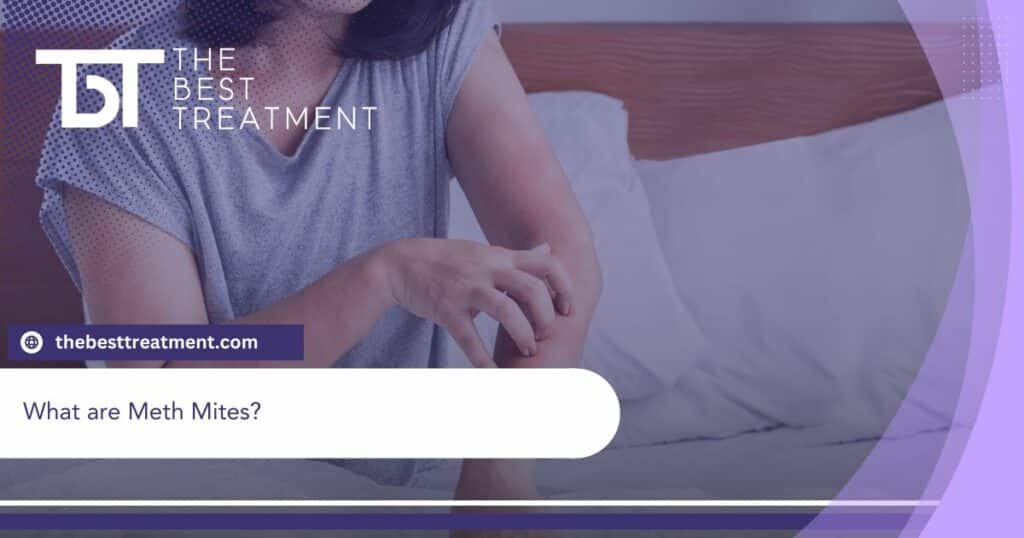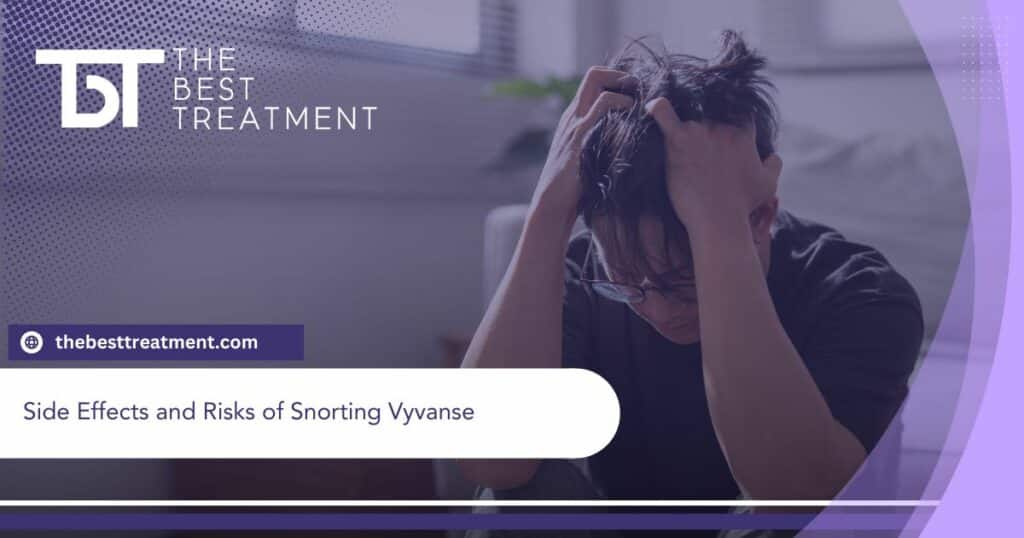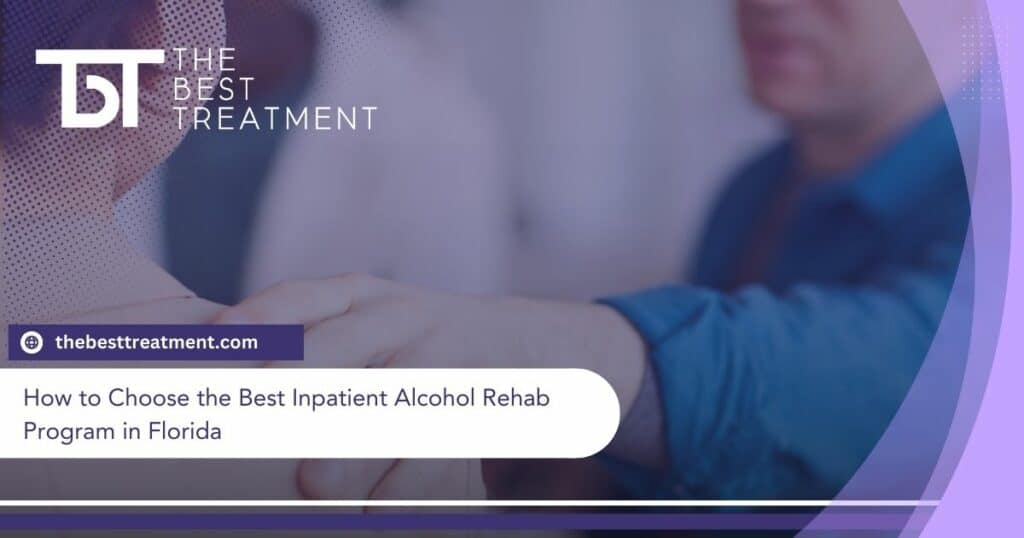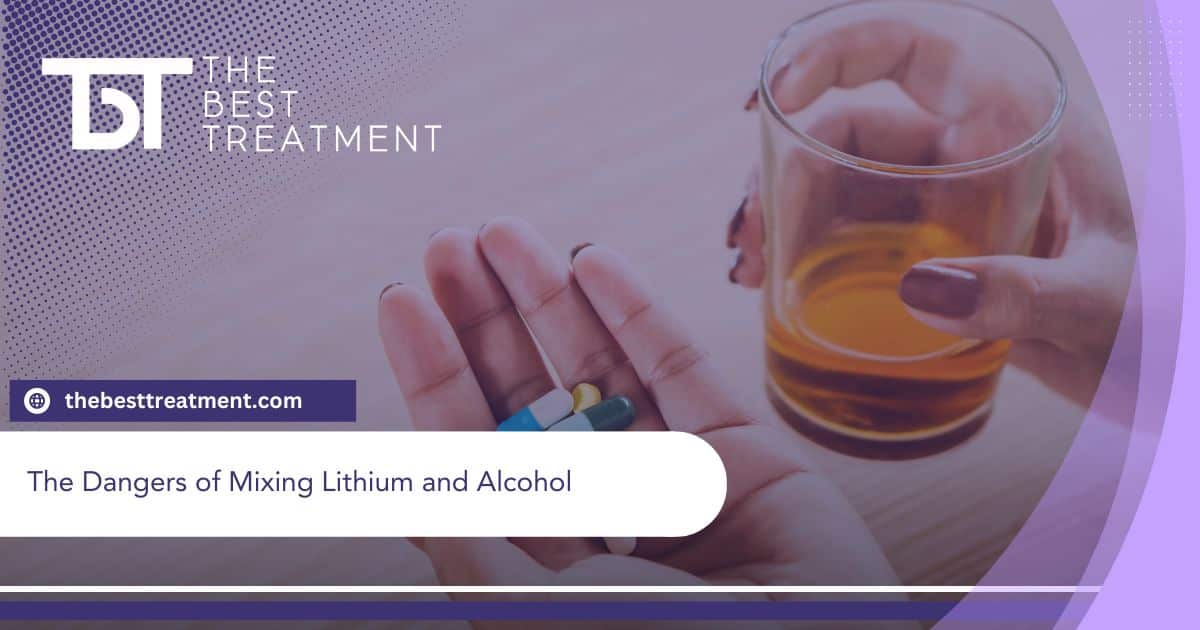Table of Contents
Bipolar disorder is a mental health condition that causes significant mood changes. People with this condition experience periods of mania characterized by high energy, impulsivity, and sometimes psychosis.
On the other hand, individuals also experience depressive episodes. This causes low moods, feelings of sadness, and a risk of suicidal thoughts.
According to the National Institute of Mental Health (NIMH), “An estimated 4.4% of U.S. adults experience bipolar disorder at some time in their lives.”[1]
People with bipolar disorder are often prescribed medications to even out their moods and prevent manic or depressive episodes. One of the most common medications used to manage this condition is called lithium.
Lithium is an antimanic agent that decreases abnormal activity in the brain.[2] Doctors manage bipolar disorder using this medication because it prevents manic episodes. If you take lithium every day, you might not be aware of the risks of mixing it with alcohol.
Combining alcohol and lithium can lead to worsened side effects, like dizziness, drowsiness, and tremors. You could also experience slurred speech, slowed reaction times, and blackouts.
What is Lithium?
Lithium is a prescription medication primarily used to treat bipolar disorder. It prevents people from experiencing manic episodes, which causes an abnormally excited mood. Lithium works by slowing down activity in your central nervous system.
The side effects of lithium may include:[2]
- Restlessness
- Hand movements
- Thirst
- Loss of appetite
- Stomach pain, gas, or indigestion
- Changes in weight
- Dry mouth
- Constipation
- Joint or muscle pain
- Depression
- Paleness
- Itching or rashes
- Acne
- Hair loss
Most of the side effects associated with lithium will subside over time. Contact your doctor if you experience side effects lasting longer than a few weeks.
What are the Dangers of Mixing Lithium and Alcohol?
You should never mix alcohol and lithium. The main danger associated with this combination is the increased side effects of lithium. Combining alcohol and lithium may lead to increased dizziness and drowsiness.
Even further, mixing lithium and alcohol might increase the risk of lithium toxicity. In other words, drinking alcohol can cause you to overdose on lithium. Lithium overdoses can be life-threatening, making it vital that you avoid alcohol consumption.
The symptoms of lithium toxicity include:[2]
- Diarrhea
- Vomiting
- Drowsiness
- Muscle weakness
- Loss of coordination
- Extreme confusion
- Blackouts
- Blurry vision
- Ringing in the ears
- Frequent urination
- Giddiness
- Seizures
Because alcohol increases lithium’s side effects, you could become mentally impaired. In other words, this combination might put you at risk of engaging in dangerous behaviors like driving while intoxicated. It is best to avoid combining alcohol and lithium overall.
Who is More at Risk When Combining Lithium and Alcohol?
While mixing lithium and alcohol is never a good idea, it can be more harmful to certain people. For example, those with an alcohol use disorder are at a higher risk of consuming dangerous amounts of alcohol while taking lithium.
Other risk factors for mixing alcohol and lithium include:
- Having a liver condition- Combining alcohol and lithium increases your chances of experiencing liver damage. If you have a liver condition, you will be impacted more greatly by drinking alcohol.
- Being over 65 years old- Older adults are more susceptible to the health effects of alcohol because our bodies become more vulnerable with age. People over the age of 65 are at a higher risk of experiencing dizziness and drowsiness when mixing alcohol and lithium.
- Being assigned female at birth- People assigned female at birth have less water in their bodies. This causes their alcohol concentrations to become higher faster. In other words, higher amounts of alcohol will be in your blood with lithium.
If you relate to any of the risks mentioned above, you should never combine alcohol with lithium.
When Can I Drink Alcohol After Taking Lithium?
You should avoid drinking alcohol until lithium is entirely out of your system. It might take 36 hours for your body to eliminate the substance. In other words, you should not drink alcohol unless you have stopped taking lithium for good.
If you are planning on drinking alcohol, you should consult with your doctor about the possible risks. Your doctor can advise you on if or when it is safe for you to consume alcohol.
If you cannot avoid drinking alcohol while taking lithium, you might have an alcohol use disorder. A professional rehab program should always treat alcoholism. Thankfully, many alcoholism treatment programs also provide mental health treatment for bipolar disorder.
Does Alcohol Affect Bipolar Disorder?
If you have bipolar disorder, you might want to avoid alcohol altogether. Alcohol causes a variety of adverse effects when you struggle with this condition.
Because alcohol changes your mood, it can lead to more mood swings for people with bipolar disorder. The National Library of Medicine (NLM) found that even small amounts of alcohol led to more episodes among people with bipolar disorder.[3]
Additionally, people with bipolar disorder are at an increased risk of developing addictions. Studies have found that 35 to 60% of people with bipolar disorder develop a substance use disorder.[4] In other words, regularly drinking alcohol could cause you to develop alcohol use disorder (AUD).
Finding Help for Alcohol Abuse and Alcoholism
If you or a loved one struggles with alcoholism, you might have a hard time avoiding mixing it with lithium. Unfortunately, combining alcohol and lithium can be incredibly dangerous. Because of this, anyone taking lithium and suffering from alcoholism should seek professional help.
At The Best Treatment Center, we offer a comprehensive treatment program. By combining mental health treatment with addiction recovery services, we increase your chances of long-term recovery.
Contact us today to learn more about our alcohol rehab program.
References:
- The National Institute of Mental Health (NIMH): Bipolar Disorder, Retrieved January 2024 From https://www.nimh.nih.gov/health/statistics/bipolar-disorder
- Medline Plus: Lithium, Retrieved January 2024 From https://medlineplus.gov/druginfo/meds/a681039.html
- The National Library of Medicine (NLM): The association between moderate alcohol use and illness severity in bipolar disorder: a preliminary report, Retrieved January 2024 From https://pubmed.ncbi.nlm.nih.gov/16426095/
- BMC Psychiatry: Excessive substance use in bipolar disorder is associated with impaired functioning rather than clinical characteristics, a descriptive study, Retrieved January 2024 From https://bmcpsychiatry.biomedcentral.com/articles/10.1186/1471-244X-10-9
Medically Reviewed: September 25, 2019

All of the information on this page has been reviewed and verified by a certified addiction professional.










